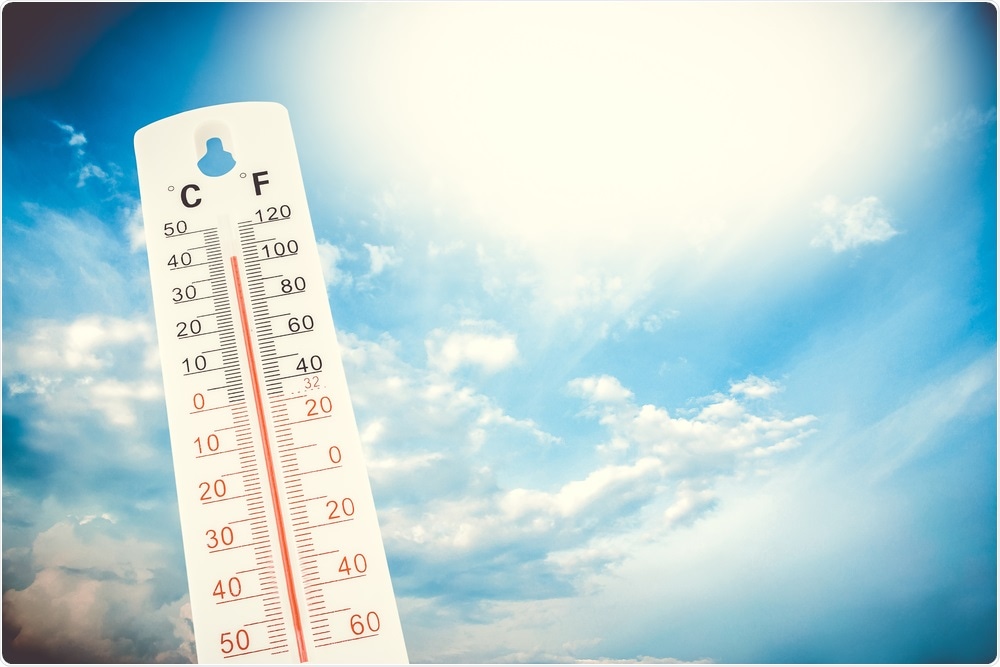According to a new study, rising temperatures could decrease the efficiency of food chains and endanger the survival of larger animals.

Rising Temperature. Image Credit: Narith Thongphasuk38/Shutterstock.com
Researchers determined the energy transfer from single-celled algae (that is, phytoplankton) to tiny animals that consume them (zooplankton).
Performed by the University of Exeter and the Queen Mary University of London and published in the Nature journal, the new study discovered that 4 °C of warming decreased the transfer of energy in the plankton food webs by as much as 56%.
When conditions are warmer, they raise the metabolic cost of growth, resulting in a less efficient flow of energy via the food chain and eventually reduce the overall biomass.
These findings shine a light on an under-appreciated consequence of global warming. Phytoplankton and zooplankton are the foundation of food webs that support freshwater and marine ecosystems that humans depend on.”
Gabriel Yvon-Durocher, Professor, Environment and Sustainability Institute, University of Exeter
The Environment and Sustainability Institute is on Exeter’s Penryn Campus in Cornwall.
Professor Yvon-Durocher added, “Our study is the first direct evidence that the cost of growth increases in higher temperatures, limiting the transfer of energy up a food chain.”
If the effects we find in this experiment are evident in natural ecosystems, the consequences could be profound. The impact on larger animals at the top of food chains—which depend on energy passed up from lower down the food chain – could be severe. More research is needed.”
Mark Trimmer, Professor, Queen Mary University of London
According to Dr. Diego Barneche from the Australian Institute of Marine Science and the Oceans Institute at the University of Western Australia, “In general, about 10% of the energy produced on one level of a food web makes it up to the next level. This happens because organisms expend a lot of energy on a variety of functions over a lifetime, and only a small fraction of the energy they consume is retained in biomass that ends up being eaten by predators.”
Warmer temperatures can cause metabolic rates to accelerate faster than growth rates, which reduces the energy available to predators in the next level up the food web.”
Dr Diego Barneche, Australian Institute of Marine Science, Oceans Institute, University of Western Australia
The study quantified nitrogen transfer efficiency (a proxy for the overall transfer of energy) in freshwater plankton that had been subjected to a seven-year-long external warming experiment performed in the United Kingdom.
Source:
Journal reference:
Barneche, D. R., et al. (2021) Warming impairs trophic transfer efficiency in a long-term field experiment. Nature. doi.org/10.1038/s41586-021-03352-2.